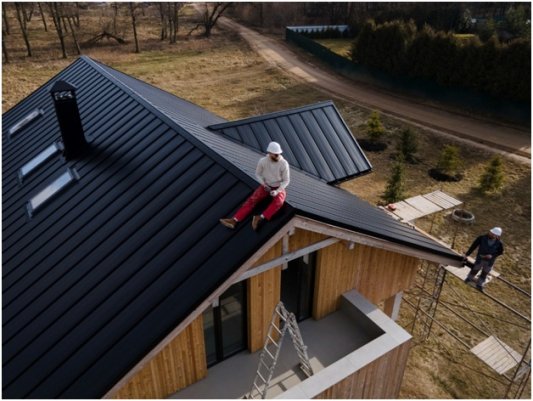Table of Contents
Introduction
As the owner of a roofing company, you understand how important marketing is to expanding your clientele. It’s crucial to be aware of the potential risks related to advertising, given the fierce competition in business. False advertising, intellectual property rights violations, and invasions of privacy are examples of advertising injuries that can cost your company money in legal fees and harm its reputation.
For this reason, it’s crucial to take preventative measures to safeguard your roofing business from such dangers. One such action is to consider Kansas roofers insurance, which can offer coverage for advertising injury claims.
In this article, you will learn about the typical advertising mistakes made by roofing firms, the legal foundation for advertising mistakes, and prevention methods. To shield your company from potential advertising injury claims, consider purchasing Kansas Roofers Insurance.

Common Advertising Injuries for Roofing Companies
Here are a few typical injuries caused by roofing companies’ advertising:
- False advertising is when a roofing company uses misleading or untrue statements in its advertising—for instance, claiming to supply a service or a specific sort of roofing material when they do not.
- Intellectual property rights are violated when a roofing business improperly exploits another person’s property, such as a copyrighted image or trademark.
- Slander and libel are two examples of defamation that occur when a roofing company spreads untrue information about a rival or person to damage their reputation.
- Privacy invasion happens when a roofing company uses its advertising to breach a person’s right to privacy. One example is using someone’s name or image without permission in marketing.
Strategies for Preventing Advertising Injuries
The following are some essential tactics for avoiding advertisinginjuries:
Getting consent to use third-party content:
If a roofing company wants to use an image or a brand that belongs to someone else in their advertising, they need to ask that person’s permission first. This avoid problems down the road.
Using disclaimers and disclosures:
Roofing firms should consider including disclaimers and disclosures in their advertising materials to prevent deceiving consumers. These might assist in outlining any restrictions or requirements that pertain to the commodity or service being promoted.
Legal examination of advertising materials:
Before launching any advertising campaign, it is essential to conduct a legal review to make sure the materials comply with all applicable laws and regulations. Failure to do so may have drastic consequences in the future.
Factual and truthful information:
Roofing firms should always advertise with factual and truthful information. This entails staying away from exaggerations and false statements and making sure that any claims made can be supported.
Conclusion
Roofing firms may be exposed to considerable risks from advertising damage. Still, these risks can be reduced by proactive measures. Additionally, purchasing Kansas roofers’ insurance can offer coverage for claims arising from advertising-related injuries, which can be a necessary precaution for roofing businesses. Roofing firms may concentrate on expanding their business and confidently serving their clients by prioritizing compliance and following ethical advertising practices.



